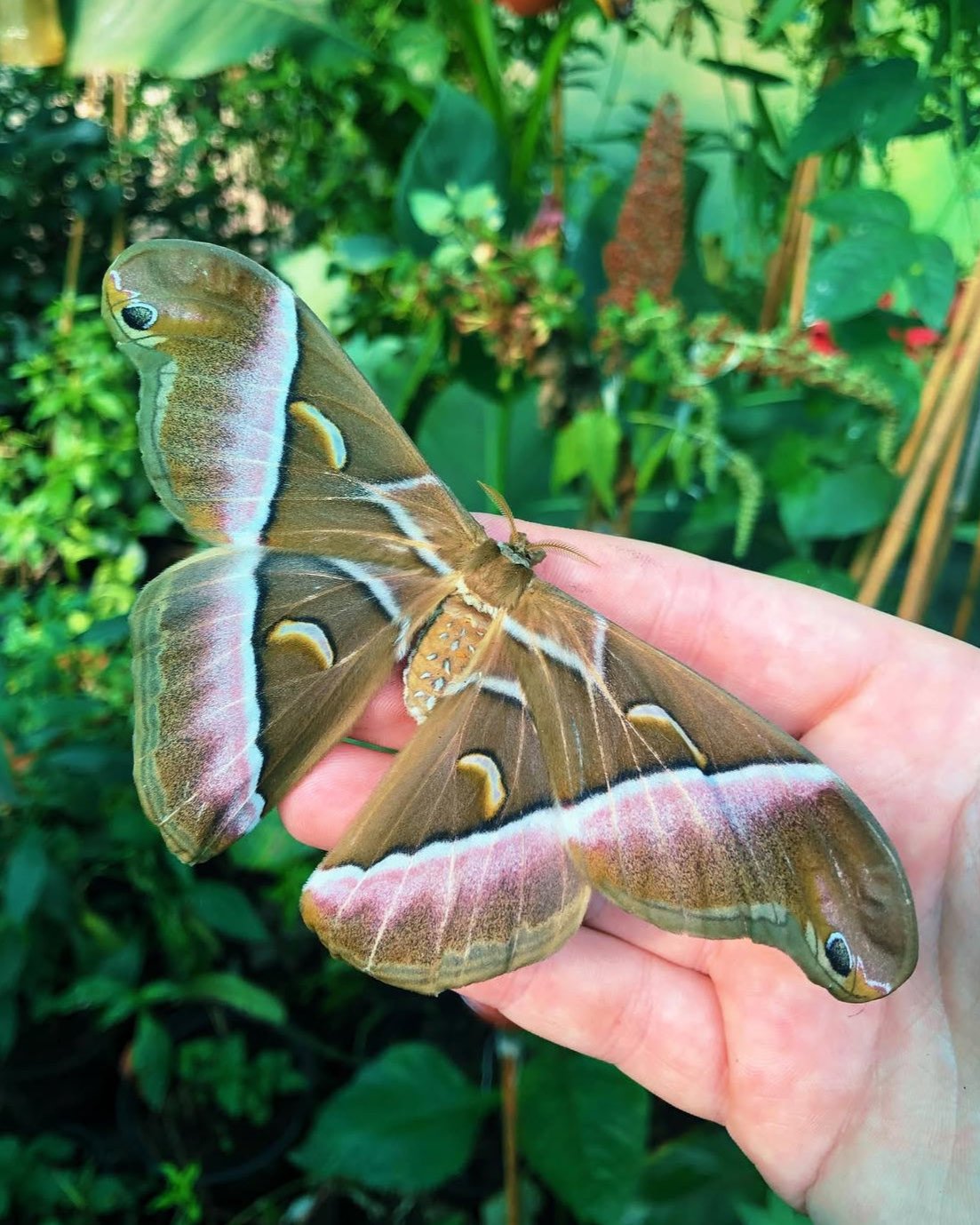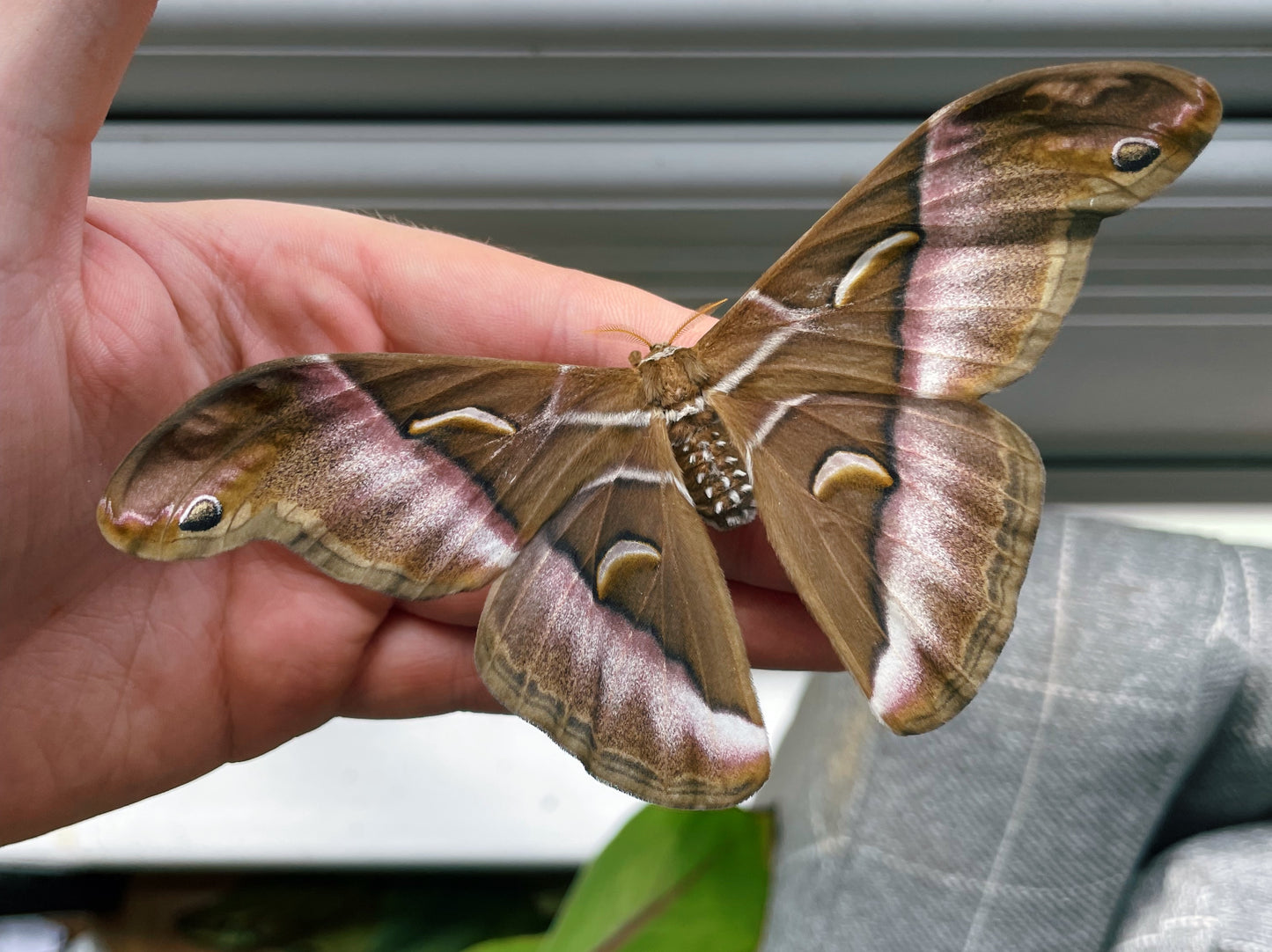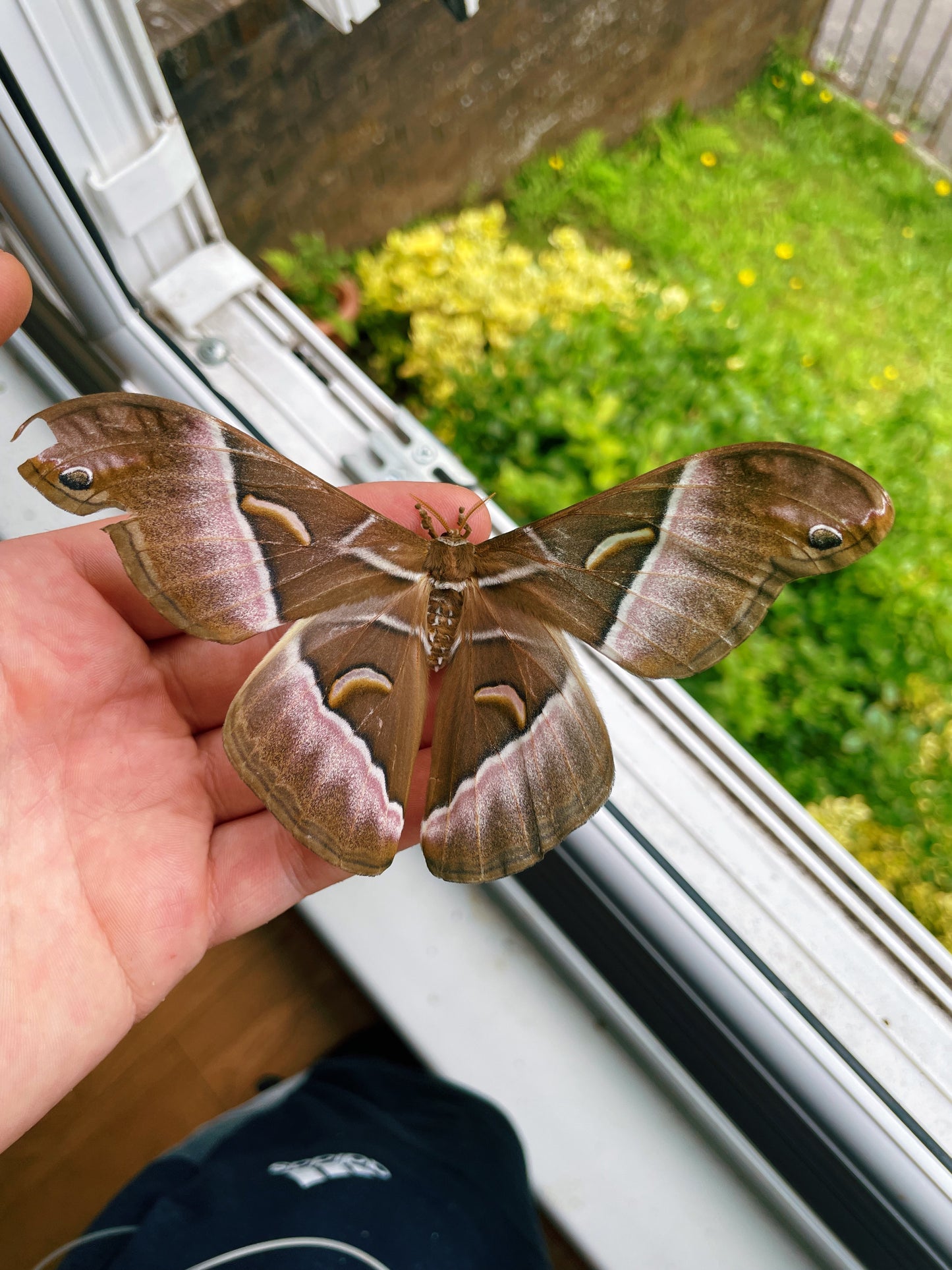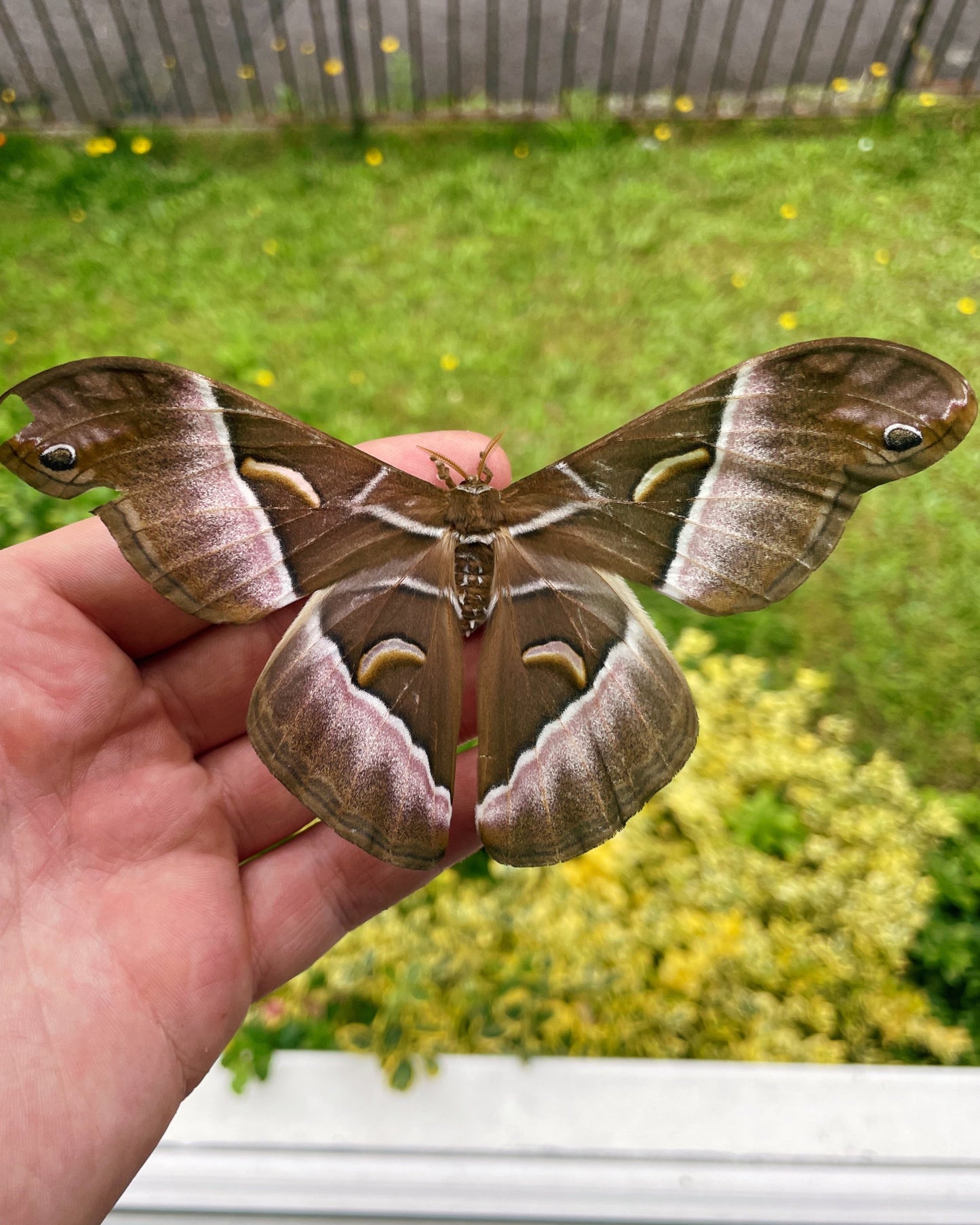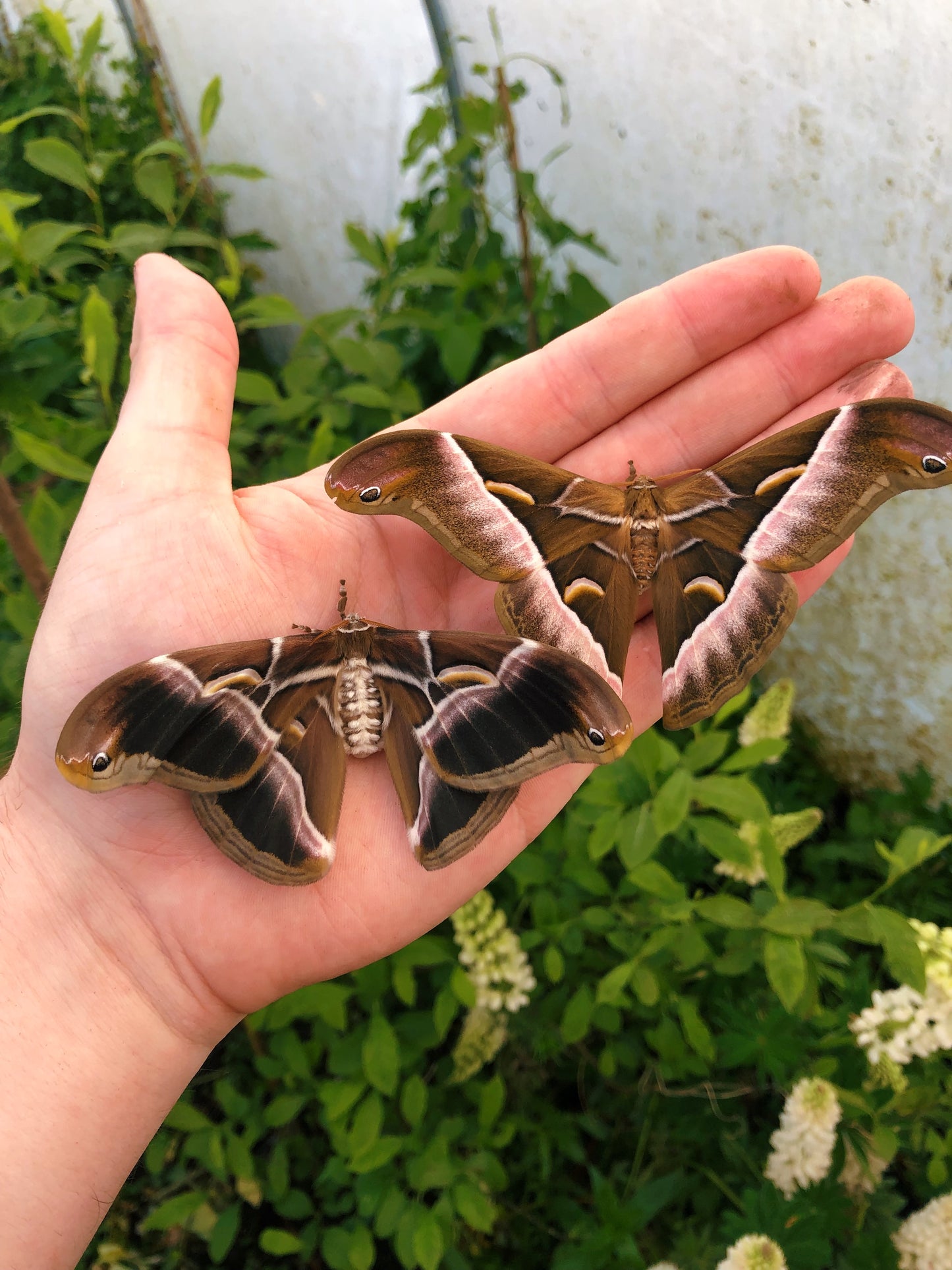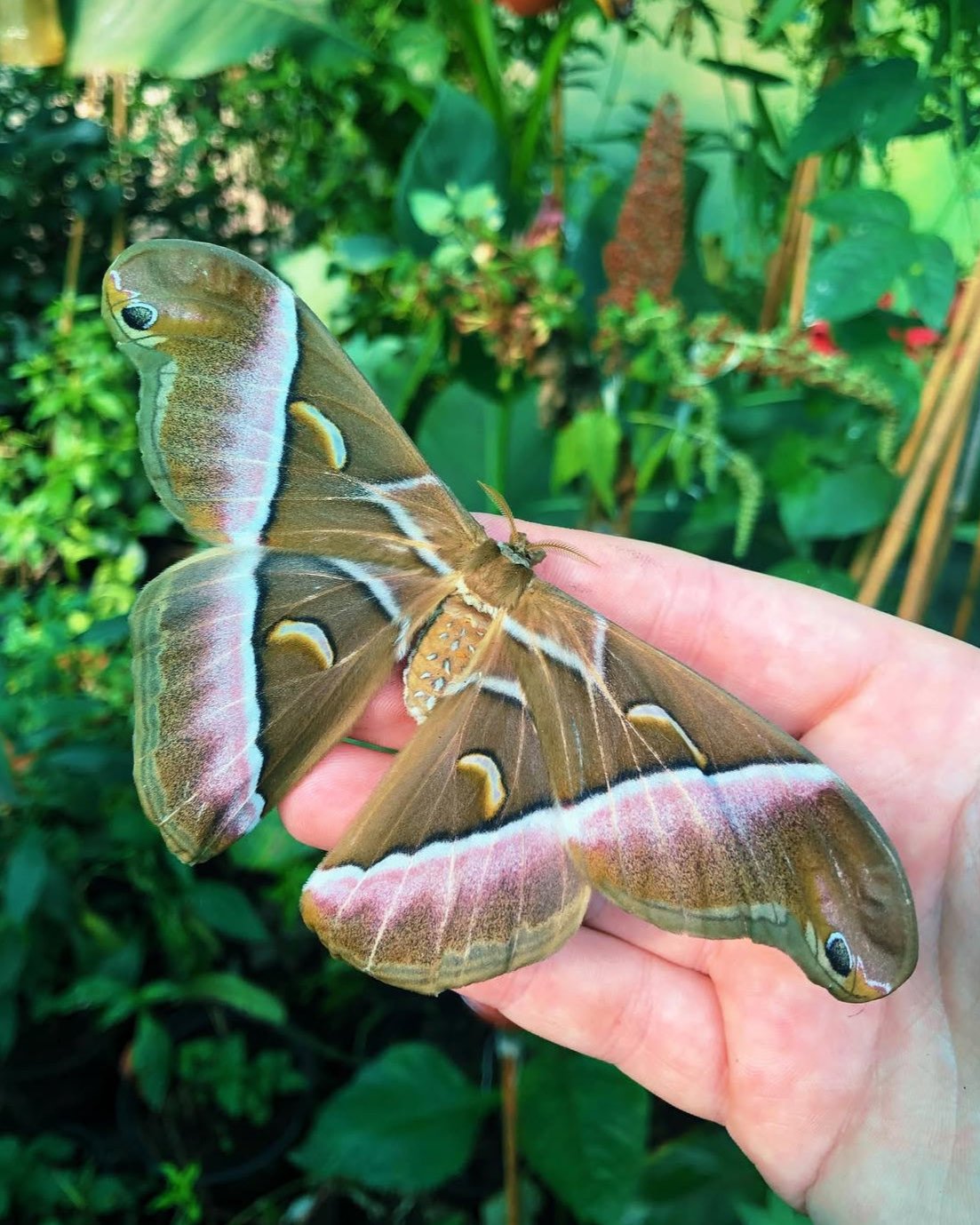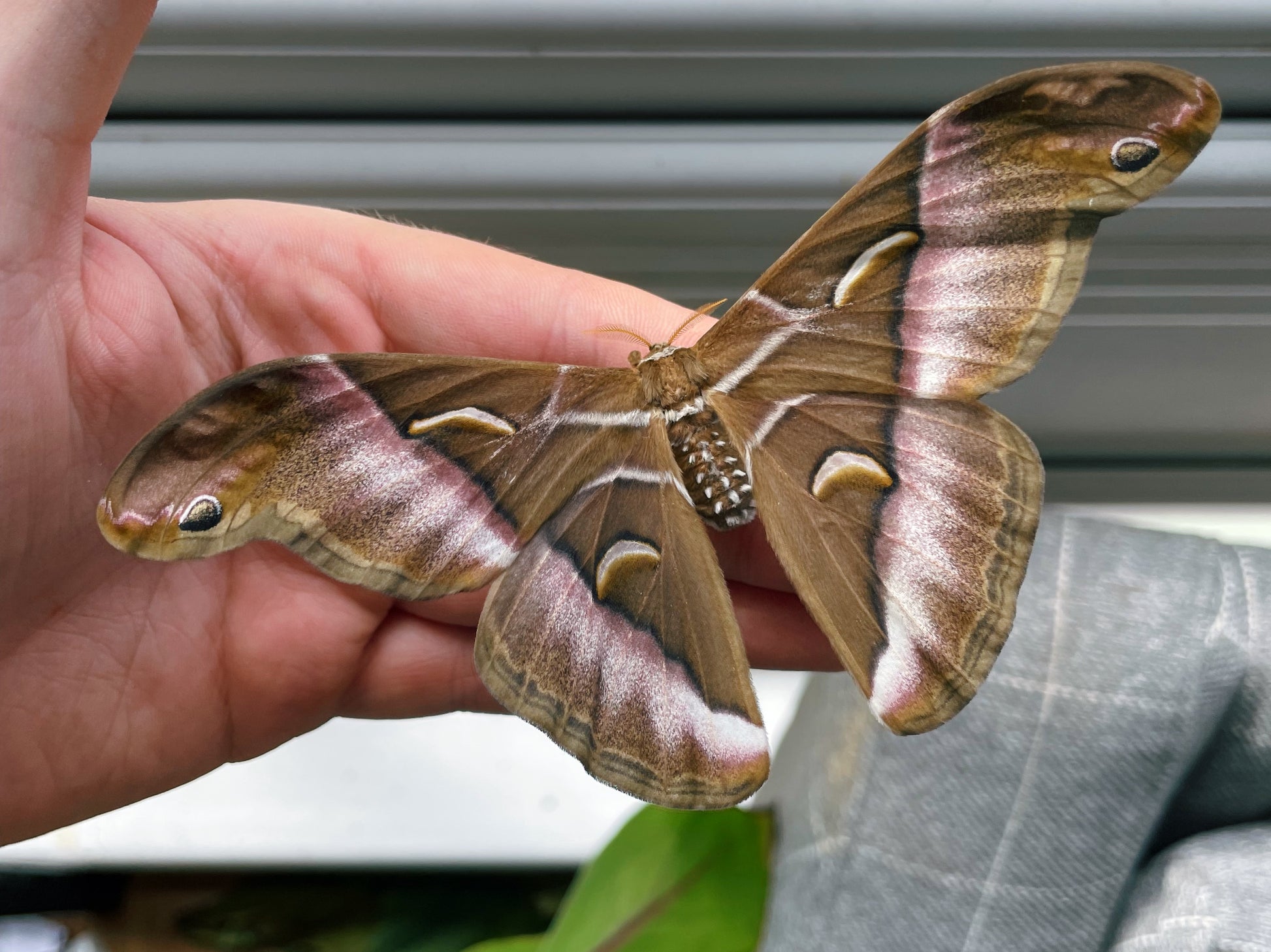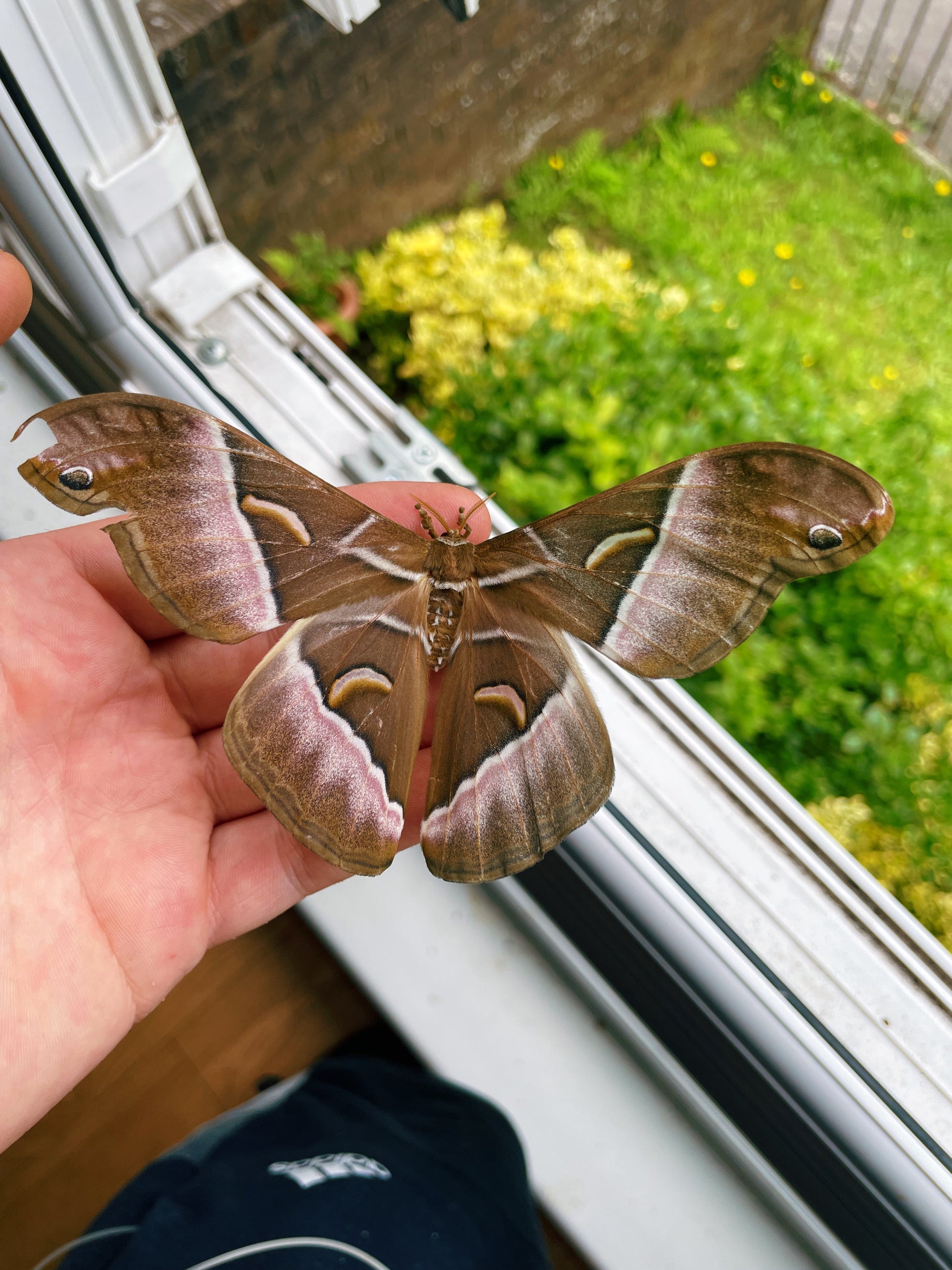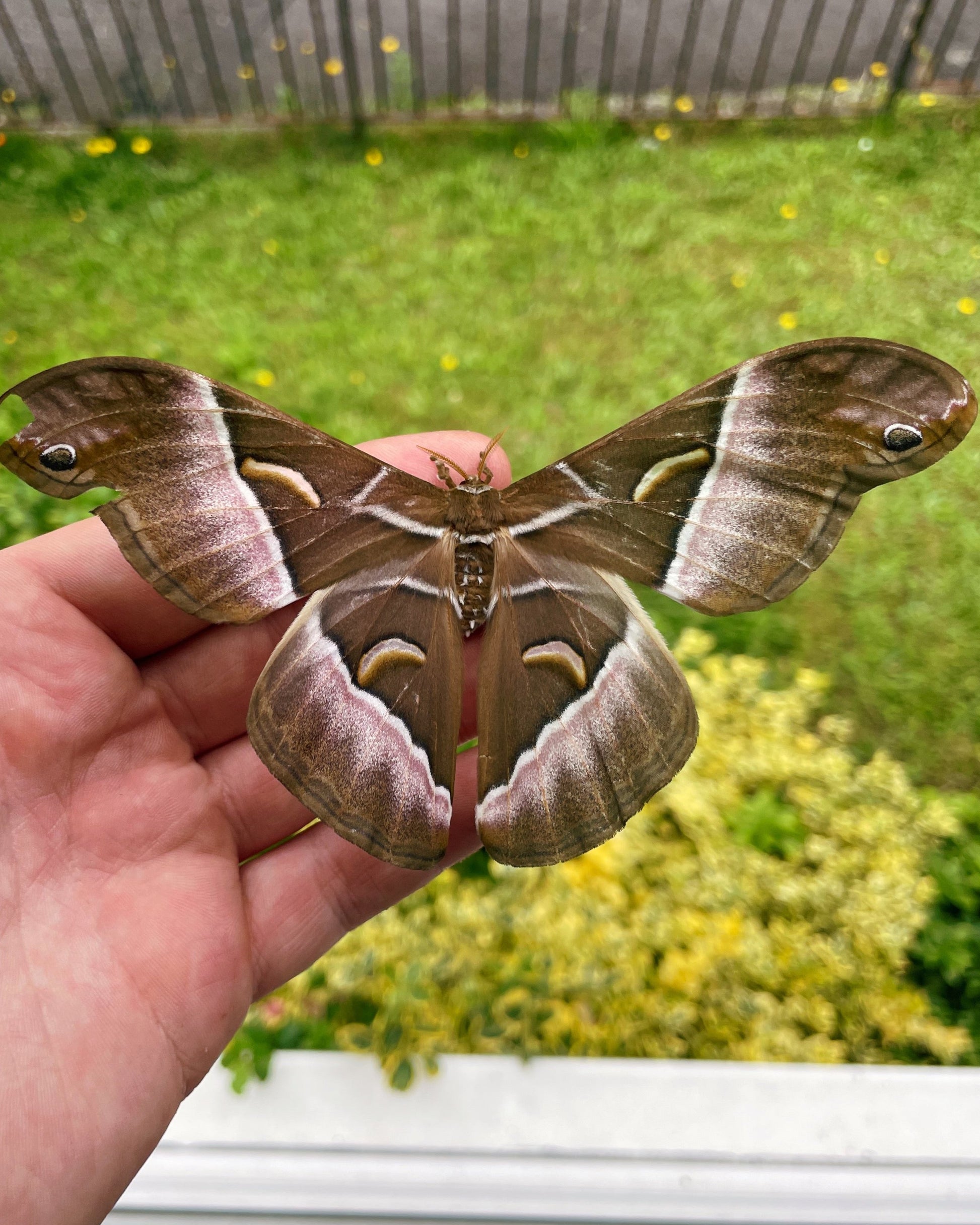Bugs & Butterflies UK
Luzon Ailanthus Silk-Moth COCOONS (Samia luzonica)
Luzon Ailanthus Silk-Moth COCOONS (Samia luzonica)
Couldn't load pickup availability
Samia luzonica, known as the Luzon Tree of Heaven Silk-moth, is a mid sized, impressive silk moth native to the Philippines, particularly the island of Luzon. It belongs to the Saturniidae family, renowned for species with striking wing patterns and significant size. Samia luzonica has a wingspan that can reach up to 150 mm, with forewings marked by a distinct, translucent “window” pattern outlined by shades of brown, tan, and hints of white. This pattern serves as a camouflage mechanism, helping it blend into its surroundings to evade predators.
The moth is primarily nocturnal and, like many silk moths, it does not feed as an adult. Instead, it relies on energy stored from its larval stage, when the caterpillar feeds on host plants (listed below), including certain fruit and forest trees. These caterpillars are pale green with distinctive white wax, and they undergo several molts before forming relatively small cocoons within which they undergo metamorphosis.
As a silk moth, Samia luzonica has been noted for its production of silk, though it is not widely used in commercial silk production as Samia ricini is a human-made species with preferable traits for silk farming. Its large, striking appearance makes it a fascinating species for entomologists and moth enthusiasts, particularly due to its limited range.
Host plants: Privet, Sweetgum, Ailanthus
Difficulty: Caterpillars can be difficult (5/10); cocoons are very easy (1/10)
Temperature: Room temp. is sufficient although they enjoy warmer conditions.
Lifecycle: Continually brooded; cocoons may diapause in winter.
Share



